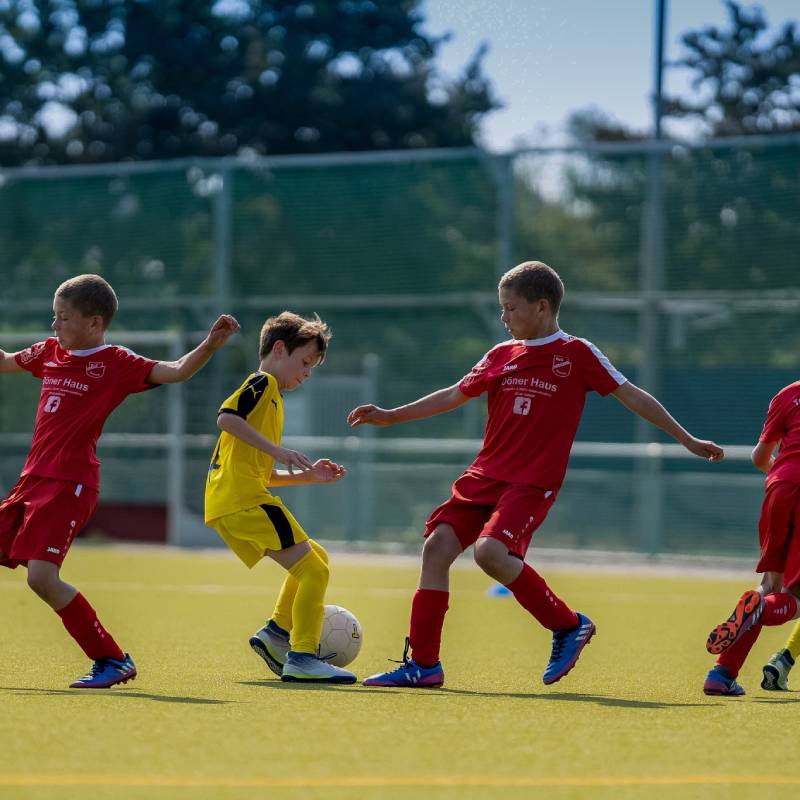How do you announce the withdrawal of a player from a selection camp?

Every year, the selection camp period is a stressful time for players, parents and coaches alike. Whether in soccer, baseball, field hockey or any other team sport, competition can be fierce between players. If this is a happy time for the players selected, it’s unfortunately not the case for those who have been cut. As a coach, we understand that it’s not easy to announce such a decision to a young player wishing to join the team. So how can we communicate this decision to the player in a constructive way?
Withdrawal in no way means that the player can no longer play, but at that point you have to understand that it’s the feeling of sadness, disappointment and rejection that he’s feeling. As a coach, it’s your responsibility to comfort the young athlete.
Sadness, disappointment and frustration - it's perfectly normal!
It’s never easy to be told you didn’t make the team. And telling the players they didn’t is even worse.
Once you’ve announced your decision, it’s time to make the player understand that it’s perfectly normal to have a strong emotional charge. Between sadness, disappointment and frustration, the player may seem discouraged, but that doesn’t mean it’s the end of practice or the end of the sport for him or her.
Remember that selection camps are designed to place players at appropriate levels with their peers to ensure the best possible experience for the team as a whole, not to discourage them from playing the sport. You must therefore be able to provide the necessary moral support for this player, and do so with empathy.
A few tips for announcing a player's cut
- Empathy all the way! Empathy helps you to better understand the feelings of the entrenched player, and to see things from his or her perspective. This important social reaction can promote his well-being and help him to see things differently.
- When announcing your final decision to the player, try not to be too direct. The player is vulnerable and may suffer psychological trauma as a result. Explain to him that he did his best, but that unfortunately he couldn’t make the team he wanted to this time, but that maybe he’ll make it next time.
- Show him how proud you are of the effort he has put in, the skills he has acquired and the team spirit he has.
- Explain to him what you appreciated during the practices, emphasizing the skills he possesses and also leads he could work on.
A lesson, not a failure!
Not joining a team may not be the end of the world, but it’s certainly the equivalent of mourning for a young athlete.
When you tell the player your final decision, the first thing that may come to mind is his incompetence. He may start to put himself down or compare himself to other players and want to give up. That’s when you have to step in.
As a coach, you’re not only responsible for training the team, and making it the best it can be technically, but you’re also responsible for cheering up the players and helping them when they’re not doing well.
So you have to be ready to offer the players options that suit them best, and keep them informed of next steps.
More tips to improve the way you do things
- Set up a meeting with the player (respecting the rule of two) and tell him what improvements he needs to make to perform better next time.
- Motivate him to challenge himself to make the team at the next selection camp.
- Explain that playing for a team at a lower level will give him the opportunity to get more playing time, and to do so at the most important moments of the game.
- Explain that he could also play sometimes as a substitute on the team he wasn’t selected for.
- Remind him that many other sports champions failed many times before becoming the stars they are today. Michael Jordan in basketball, Babe Ruth in baseball, Tom Brady in soccer and many more.
- Remind them that the best leaders are judged on how well they get up after a fall. This will motivate them even more to follow the suggestions for improvement you’ve made.
This is why it’s so important to announce your final decision as a coach in a way that shows empathy for the youngster.
Overall, feedback should be positive, constructive and encouraging, rather than demeaning, so that he comes out of it even stronger. Finally, it’s also important to explain that when we play as a team, we’re not just looking for skills that are unique to each player, but rather skills that will make for a better combination within the team.
Karl Demers



